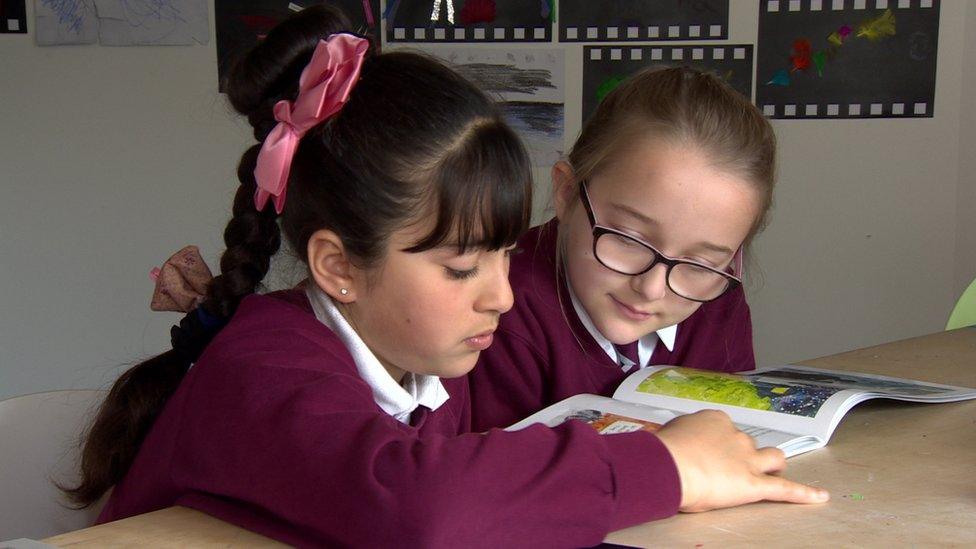Syrian refugees: How are young pupils adapting to NI schools?
- Published
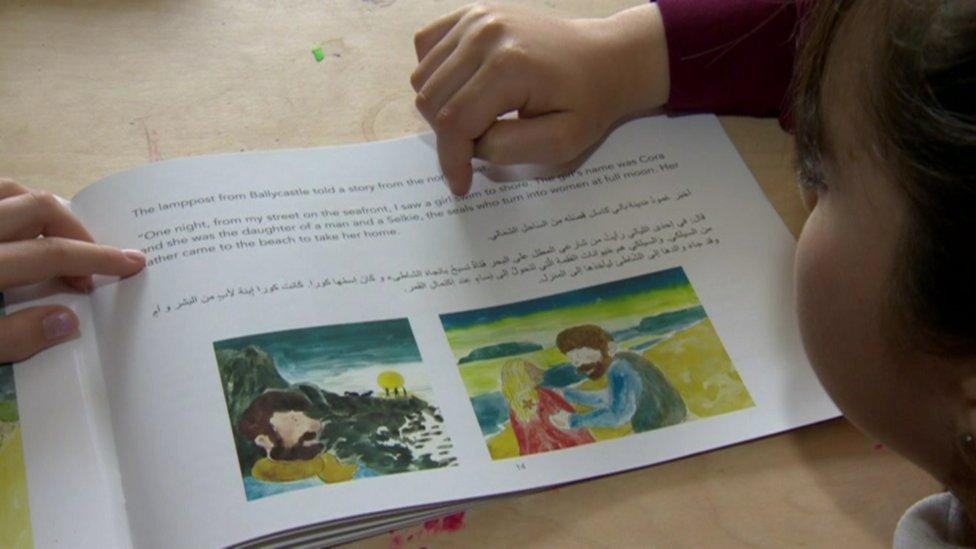
Many refugee pupils from Syria have been made to feel welcome and have settled well in Northern Ireland's schools.
But, for others, learning English remained a significant challenge to learning and making friends.
That is according to research into support for Syrian refugee pupils carried out by experts from Stranmillis University College.
About 1,900 Syrian refugees have settled in Northern Ireland since 2015.
They include almost 700 school-aged children and young people.
The staff from Stranmillis were commissioned by the Education Authority (EA) to find out about their experiences and what support they needed.
Their findings are based on responses from 67 Syrian parents of 100 children and young people, 25 pupils and in-depth focus groups with 16 teachers.
The parents were generally happy with how their children had been welcomed and a number expressed gratitude for the support from schools and teachers.
"She is very happy in school and wants to go to school every day and also the teaching staff is very helpful, thanks to them," the parent of an eight-year-old girl said, for example.
But many also said their children had faced difficulties with language and communication and that had stopped some making friends.
The report's authors said that schools and teachers needed more support to help Syrian children with their language skills.
'Fear of planes and missiles'
A third of parents also reported that their children had suffered trauma before they came to Northern Ireland due to the conflict in Syria.
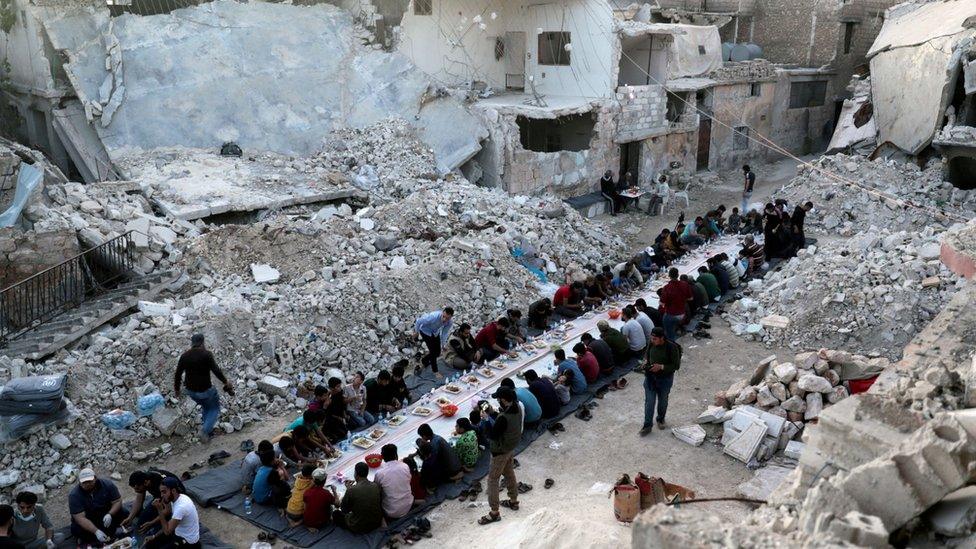
Some children suffered trauma before they came to Northern Ireland due to the conflict in Syria
The report's authors defined trauma as "a scary, dangerous, violent, or life-threatening event that overwhelms an individual's ability to cope and impacts their sense of safety and security".
One parent of a 17-year-old boy said: "He experienced the fear of being killed and the fear of planes and missiles every day."
Another parent of a 15-year-old girl said she had been separated from her brother and his children in Lebanon two years ago.
"She always thinks about them and is afraid for them," they said.
Some parents were worried that their children had become fearful and withdrawn "due to experiences of violence, the loss of or separation from family members, and interrupted education".
But the research found many Syrian pupils were resilient despite what they had experienced.
'Happy, safe and proud'
One 18-year-old girl said war had taught her to be patient.
"It helps me to be patient while doing my homework," she said.
"I was strong when I explained my very difficult journey from Syria to here, and what I saw in terms of dead bodies, bombing, and clashes in front of my class students and the teacher.
"I felt happy, safe and proud to be in front of the students with such audacity."
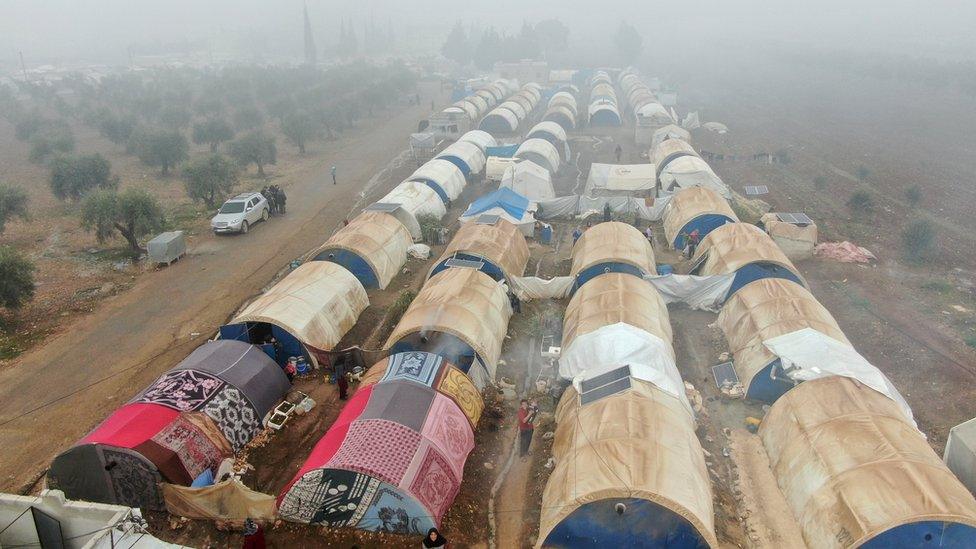
Many Syrian families have been displaced because of the war (archive photo shows a camp in Northern Aleppo countryside in December 2020)
Teachers, though, expressed concern that Syrian children in their schools "had experienced a wide range of traumatic events related to living in a war zone, displacement, and living in camps".
They said that although the EA's Intercultural Education Service did provide a lot of help, there was still a need for more support for pupils and schools.
That included more help for pupils affected by trauma and measures "to remedy the negative effects of language barriers on learning and mental health".
The EA has started a new pilot referral service for schools - the Schools Trauma Advisory and Referral Service (Stars).
The Stranmillis research, entitled School-based Support for Syrian Refugee Pupils in Northern Ireland, has just been published.
It was commissioned by the EA to inform the development of the Stars service.
- Published20 September 2020
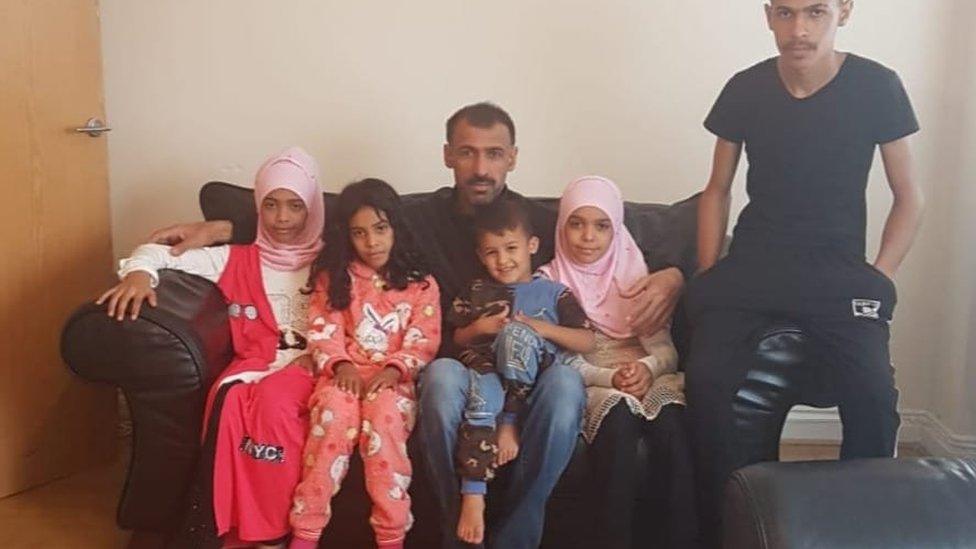
- Published12 November 2019
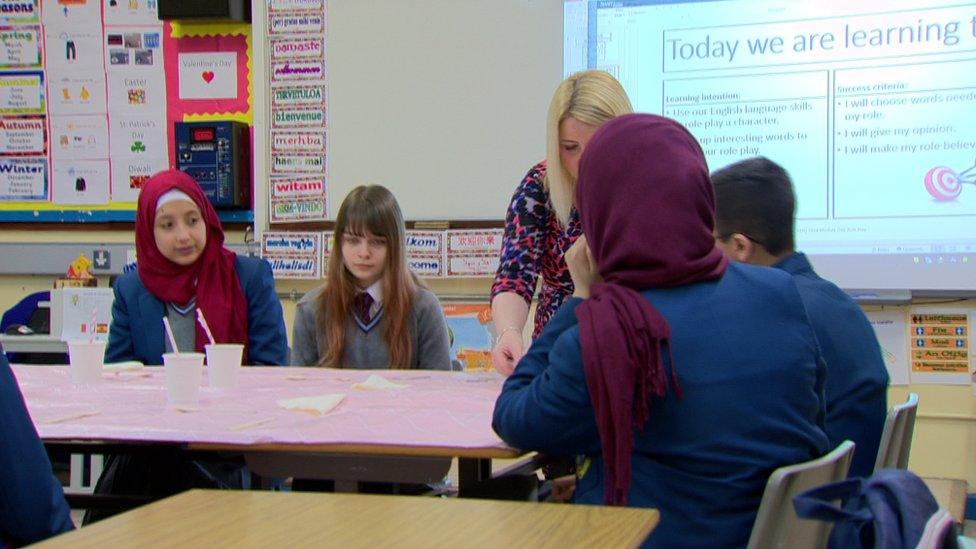
- Published17 September 2019
